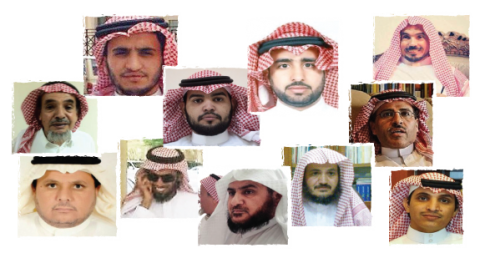
He had been under investigation since 11 May 2013 with the Bureau of Investigation and Public Prosecution in Riyadh. Mr Al Harbi was reportedly interrogated exclusively about his human rights activities, his online publications and accounts, his involvement with ACPRA and his relationships with other ACPRA members, human rights activists and detainees. At the time, he told Alkarama: "I expect to be arrested"...
Seven months later, Fawzan Al Harbi was summoned by the Special Criminal Court of Riyadh on 4 December 2013 for the first hearing of his trial and appeared of his own free will in front of the Court. He is accused of "formulating and spreading false information about the Saudi government" as well as "accusing the judiciary and the executive on the basis of fabricated accusations, questioning the integrity of judicial proceedings, defaming the security forces, and turning public opinion against the State authorities."
During the second hearing, which took place on 26 December 2013, Judge Omar Ben Ali Al Sahn ordered the arrest of Mr Al Harbi. This decision appears to be motivated by statements made by Mr Al Harbi during the first hearing, in which he recognized his membership of ACPRA and repeated calls he had made in the past for a greater respect of internationally recognized civil and political rights by the Saudi authorities. Despite the questions raised by Mr Al Harbi's lawyer on the legal basis of the decision taken by the judge, no answer was provided to him. During the third hearing which took place on 9 January 2014, the judge again refused to answer the lawyer's questions about the reasons of Mr Al Harbi's detention, telling him only that "the legal basis for the arrest decision will be provided in the final judgement".
